
[ad_1]
Ecobee makes the absolute best smart thermostat we’ve tested, and it has a pretty good home security camera. Both devices connect to sensors you can scatter around your home, and either can act as the hub for a self-monitored home security system—provided you’re willing to pay either $5 or $10 per month for Ecobee’s Haven service.
Okay, Haven service is not mandatory, but Ecobee doesn’t have much of a security system without it, primarily because you get only real-time access to its security camera if you don’t subscribe. What’s the difference between the two Haven plans? For $5 per month, you get self-monitoring and 14 days of video recording for one Ecobee Smart Camera. You get the same self-monitoring with the $10-per-month plan, but the 14 days of video recording extends to an unlimited number of Ecobee cameras.
You don’t need to have any cameras to subscribe to Haven home monitoring—you can get by with just an Ecobee thermostat and a collection of occupancy and door/window sensors—but a home security system without a camera leaves you blind. You’ll know someone has opened a door or window or is moving around inside your house when it’s supposed to be vacant, but you won’t be able to see who or what triggered the resulting alerts.
This review is part of TechHive’s coverage of the best smart home systems, where you’ll find reviews of competing products, plus a buyer’s guide to the features you should consider when shopping.
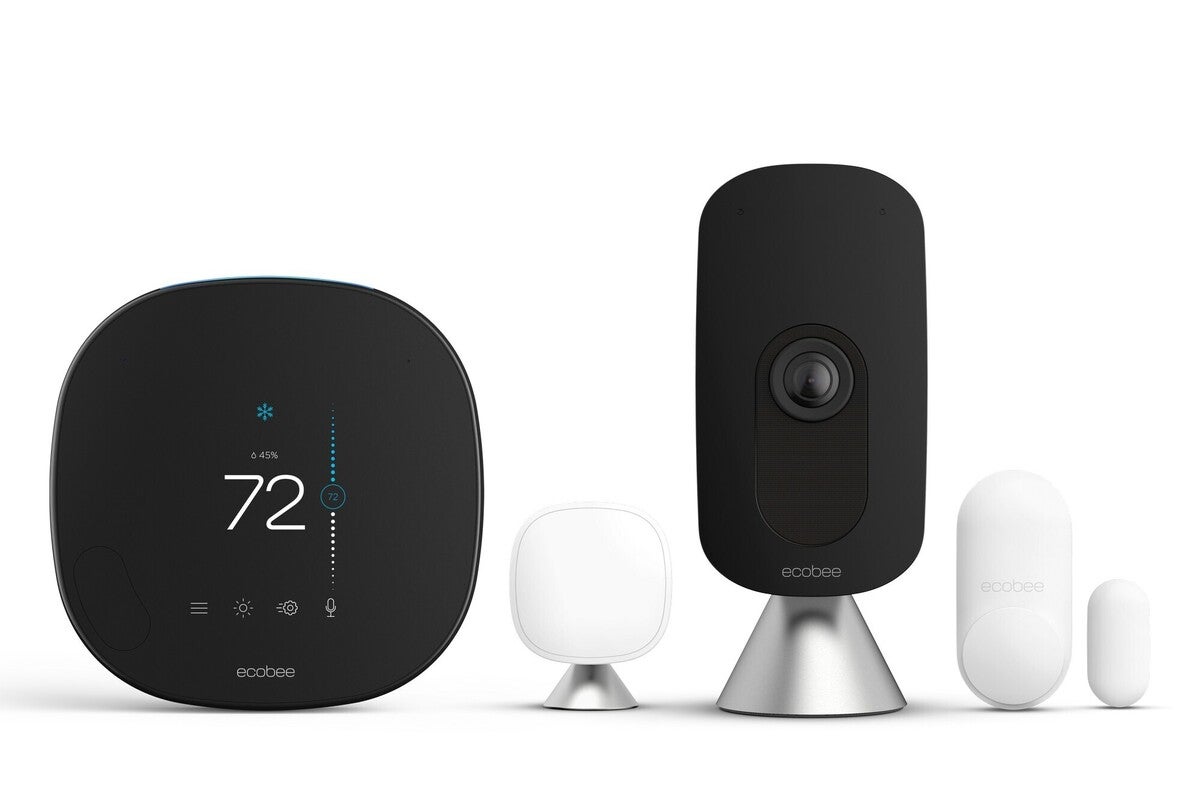 Ecobee
EcobeeLeft to right: Ecobee’s smart thermostat, room SmartSensor, smart camera, and door/window SmartSensor. Either the thermostat or the camera can be the system’s hub.
Three configurations
The Total Home and Comfort and Security Bundle reviewed here costs $499 and consists of Ecobee’s SmartThermostat with voice control, its SmartCamera with voice control, three of its SmartSensors, and two of its SmartSensors for doors and windows. The $313 Home Comfort with Voice Control bundle consists of the thermostat and three SmartSensors, and the $279 Home Security Bundle drops the thermostat but includes the camera, two SmartSensors, and two SmartSensors for doors and windows. You can start with any bundle and add components a la carte.
Ecobee’s SmartSensors are one-piece devices that you mount to a wall or set atop furniture to monitor both motion and temperature. In addition to their security function, they also send ambient temperature readings to Ecobee’s smart thermostat and report whether a room is occupied or not. The thermostat takes those readings into account when controlling your HVAC system to reach the programmed target temperature.
Ecobee’s SmartSensors for doors and windows detect motion and report the state (open or closed) of the door or window they’re attached to. These are two-piece units consisting of a sensor and a magnet. When the door or window opens, the magnet separates from the sensor and triggers a message to the hub (the smart camera or thermostat).
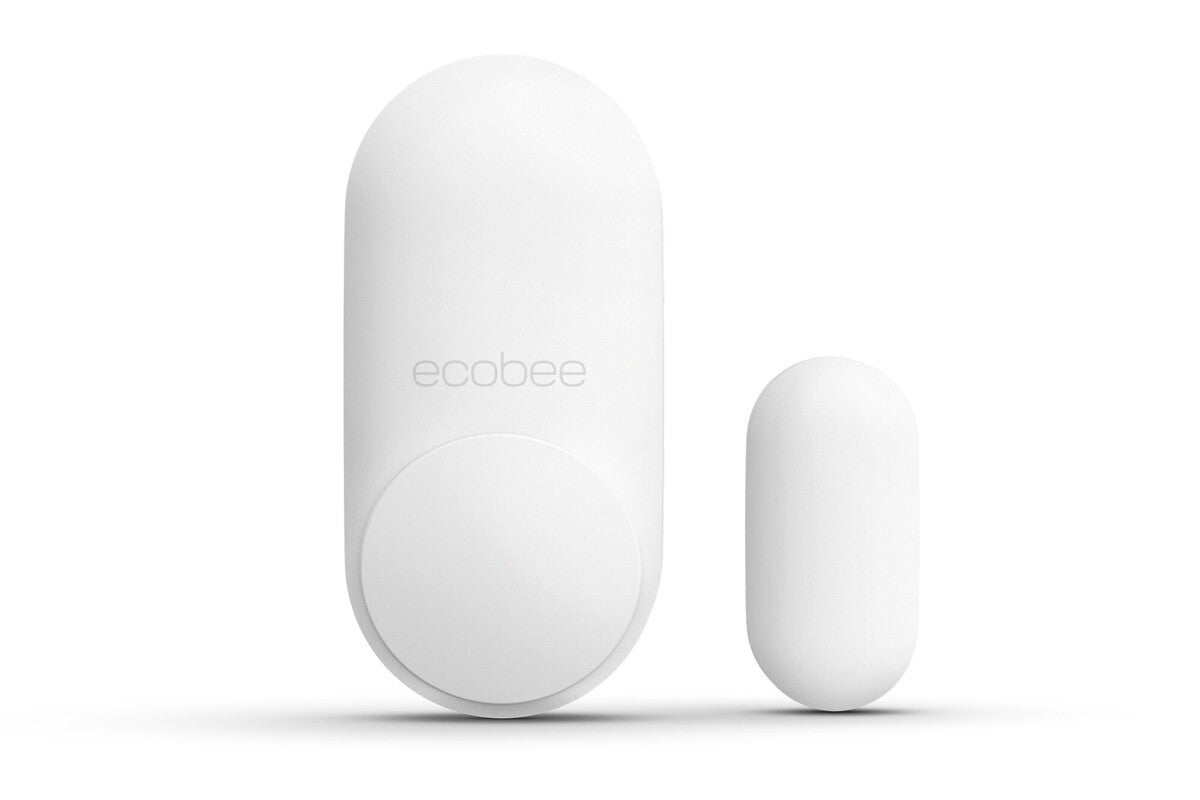 Ecobee
EcobeeEcobee’s SmartSensor for doors and windows can detect nearby motion in addition to reporting the current state of the door or window it’s attached to.
Depending on the system’s “armed” state (more on that in a moment), the hub (the thermostat or the camera) will in turn send a push notification to your smartphone. In addition to these discrete sensors, the thermostat has an integrated motion and ambient temperature sensor, and the camera has an integrated motion sensor.
It’s worth noting that this is not a complete smart home system: Ecobee does have a smart light switch, but it can’t be integrated with any of these bundles so that motion triggers a light to come on. There are no third-party integrations for smart locks, smart bulbs, or other smart home subsystems, either.
How it works
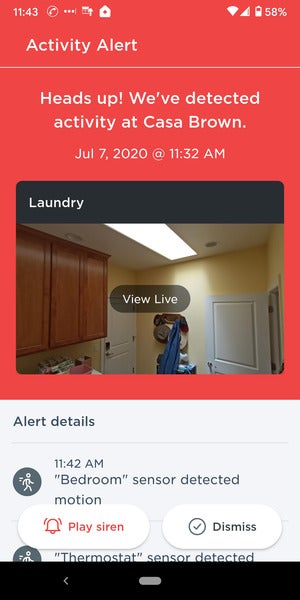 Michael Brown / IDG
Michael Brown / IDGEcobee’s home security system doesn’t have a professional monitoring option, so you won’t want to miss one of these alerts. Pushing the “Play siren” button is the only way to sound the alarm.
Like most home security systems, Ecobee’s has three states: Disarmed means no devices are monitoring motion, and the door/window sensors won’t report when doors or windows are opened (you can still determine their current state by checking the app). Armed Stay means the door/window sensors are monitoring when those access points are opened, but they’re not monitoring other types of motion (so you can move about freely while you’re home). Armed Away means you’ll be alerted when any sensor detects motion and when any monitored door or window is opened.
I won’t get deep into the Ecobee Smart Camera’s features, since we published an in-depth review in July (which you can read here), but you’ll want to know that when motion or the opening of a door or window is detected in either of the armed states, the Ecobee Smart Camera will record a two-minute video (provided you pay for a Haven plan). The forensic value of this clip will of course be determined by the intruder’s path through your house. If they enter the camera’s field of view, great; if they don’t, you’ll get a two-minute view of an empty room. Having more than one camera, therefore, is highly beneficial, but the existing camera is designed strictly for indoor deployments (although you can aim it out a window and disable its infrared LEDs for night vision if you want to monitor an outdoor space).
Ecobee’s camera and its smart thermostat both have sirens onboard. These sound like a clanging metal bell in the midrange of the frequency spectrum, with a higher-frequency electronic tone oscillating in the background. The sirens are not at all loud—just 76dB for each device—and would at best annoy an intruder versus driving them out of the house the way a more robust siren would (not to mention possibly garnering the attention of your neighbors).
But the bigger problem with the siren is that it doesn’t sound off automatically in the event of breach. Ecobee instead depends on you to push a button in the app to trigger it. So, if you don’t hear the alert, or you ignore it, the intruder won’t know they’ve been detected and might be inclined to hang out in your house longer.
It’s also worth repeating here that Ecobee Haven is a self-monitored security system. That makes it inherently more private, but one of the benefits of a professionally monitored system is that someone will notify a law-enforcement dispatcher of a potential break-in if you can’t. Ring offers a professionally monitored plan for its Ring Alarm system for $10 per month, while Nest charges $29 per month ($19 per month with a three-year commitment) for professional monitoring of its Nest Secure system.
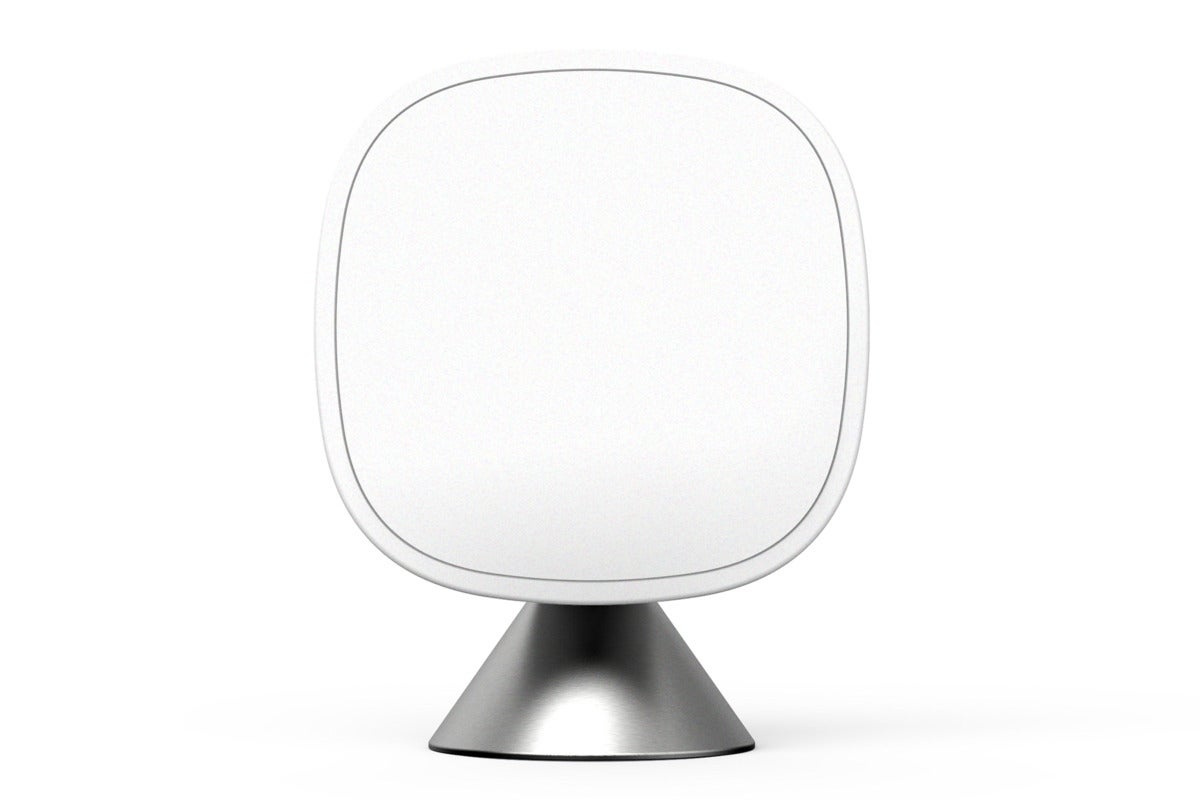 Ecobee
EcobeeEcobee’s other SmartSensor can detect motion plus ambient temperature, which Ecobee’s smart thermostat will take into account.
Another shortcoming in Ecobee’s home security offering is the system has no entry or exit delays. You’ll need to remember to disarm the system before you enter the house, and you can’t arm it until you’re out of the house. Better security systems give you a few seconds to enter and disarm, and arm and exit respectively—typically while sounding a warning tone—before the alarm siren goes off. Granted, entry and exit delays give an intruder a few more seconds to be in your home undetected, but in my experience, the convenience far outweighs the risk.
The absence of an entry/exit delay is somewhat offset by an AutoPilot feature that’s supposed to arm the system when you leave and disarm it when you return, using your smartphone’s GPS feature. If there’s more than one person in the home, AutoPilot will arm when the last person with the app on their phone leaves, and it will disarm when the first person with the app on their phone returns.
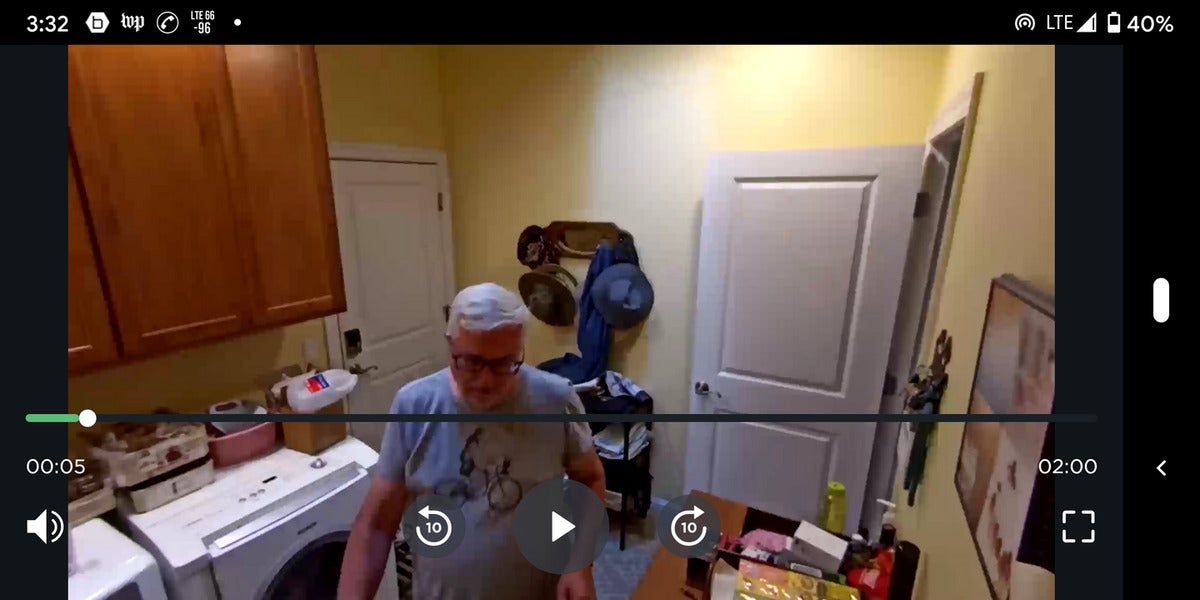 Michael Brown / IDG
Michael Brown / IDGThe Ecobee SmartCamera will focus on and track a person who enters it field of view.
I was able to get this to work for the camera—there’s a privacy-enhancing geofencing feature that defaults to turning off the camera while you’re home, and turning it on when you leave—but the security side of the system never armed and disarmed for me this way. Ecobee says my experience is not typical, so your mileage may vary. You can also arm and disarm the system with an Amazon Alexa voice command (you’ll need to set a four-digit PIN to accomplish the latter). Ecobee’s Google Assistant support is currently limited to its smart thermostat and light switch.
Bottom line
I haven’t encountered a better smart thermostat than Ecobee’s top-of-the-line product, and its home security system has some very good features. AutoPilot—if it works—is convenient, and Ecobee’s sensors are top notch. But as a security system, it’s essentially worthless without a subscription, and Ecobee doesn’t deliver a lot of value for the monthly fees it seeks to collect.
In the end, as I said of Ecobee’s security camera, there are stronger—and more comprehensive—DIY home security systems to choose from. If security is your primary focus, I’d put Ring Alarm at the top of your list, with Abode Iota a close second if you want to self-monitor.
[ad_2]
Source link